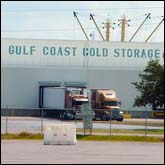![Midamar Halal Pizza via http://www.midamarhalal.com/Product/Pizza/Halal-Pizza/166/Halal-Beef-Pepperoni-Pizza-12in-bake-Rise.aspx [Fair Use] Midamar Halal Pizza via http://www.midamarhalal.com/Product/Pizza/Halal-Pizza/166/Halal-Beef-Pepperoni-Pizza-12in-bake-Rise.aspx [Fair Use]](https://www.exportlawblog.com/images/midamar_pizza.jpg) Back in 2014, this blog reported here and here on the indictment of Midamar Corporation for exporting non-halal meat to Malaysia and Indonesia, both countries which forbid the importation of non-halal meat products. I expressed some concern that the theory of the case turned the Department of Justice into the Islamic Religious Police given the extent to which the indictment depended on allegations that the slaughterhouse used by Midamar failed to comply with halal requirements by, e.g., using non-Muslims to slaughter animals.
Back in 2014, this blog reported here and here on the indictment of Midamar Corporation for exporting non-halal meat to Malaysia and Indonesia, both countries which forbid the importation of non-halal meat products. I expressed some concern that the theory of the case turned the Department of Justice into the Islamic Religious Police given the extent to which the indictment depended on allegations that the slaughterhouse used by Midamar failed to comply with halal requirements by, e.g., using non-Muslims to slaughter animals.
The case went to the jury last Friday and it appears from local press reports (here and here) that the theory of the indictment has been narrowed. The case seems to have shifted away from the claim that the exported meat was not halal but rather that Midamar obtained meat from a slaughterhouse that had not been approved by Malaysia or Indonesia and put the number of a slaughterhouse approved by the two countries on the the USDA Food Safety Inspection Service Form 9060-6 required to accompany the export. (A spokesman for Midamar told this blog that the warehouse used by Midamar was, in fact, complying with halal requirements.)
The defense’s response to this theory is that the mislabeling was not a criminal act. The defendant, William Aossey
testified Thursday that changing the labels and documents, which are required under law for halal beef products, isn’t a criminal offense.
“It’s a minor labeling infraction, nothing criminal about it,†Aossey said told jurors.
He admitted to changing the establishment number belonging to PM Beef in Windom, Minn., to another number belonging to J.F. O’Neill Packing Co. in Omaha, Neb., because PM wasn’t approved to export beef to Malaysia and Indonesia during the years 2007 to 2010.
At first, this seems to be pretty much game over for the defense, given the defendant’s apparent admission in open court that he faked the establishment numbers on the USDA Export Certificate. Of course, Aossey admitted changing the numbers because the evidence on that count appears to have been overwhelming. The strategy of the defense, as set forth in its motion to dismiss the indictment, is that the USDA has exclusive authority over meat misbranding and false statements on USDA export certificates. Moreover, the defense argued this exclusive jurisdiction extends to prevent prosecution for such acts under 18 U.S.C. § 1001 ,a/k/a the “Martha Stewart” law, which criminalizes false statements made to federal officers and agencies.
The trial judge was having none of this and denied Aossey’s motion to dismiss. So, the defense ploy here is to hope for jury nullification and, if that doesn’t work, set up grounds for an appeal.

 Posted by
Posted by  Category:
Category: 

 A reader sent me
A reader sent me  Usually criminal export defendants are in the dock for exports of night vision, stun guns, or high-tech chemical processing equipment. Today we have criminal defendants who were
Usually criminal export defendants are in the dock for exports of night vision, stun guns, or high-tech chemical processing equipment. Today we have criminal defendants who were 

